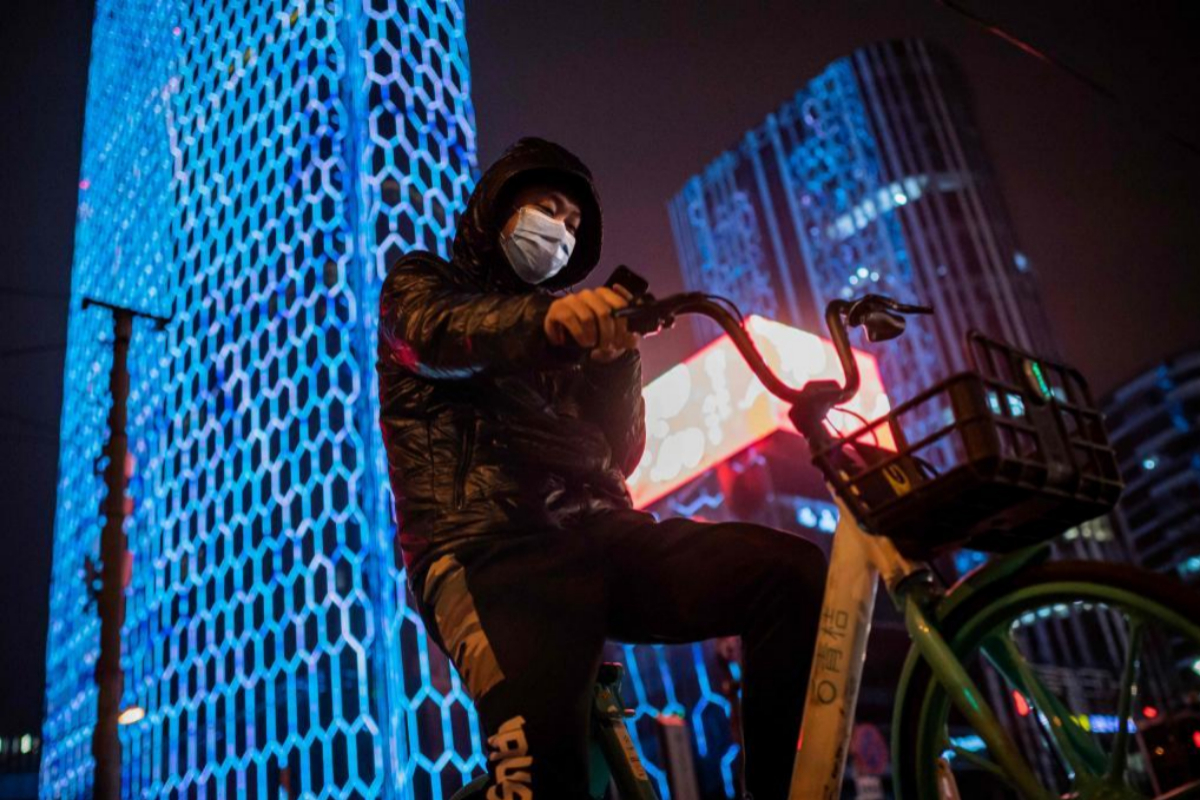- Spain: Nine negative cases and three under study
It was a phrase made that has been consolidated over the years, occupying dozens of press headlines when the Asian giant made some fuss of crisis: when China sneezes, the world catches a cold . Said and done. The coronavirus is depleting the locomotive that pulls the world economy and, therefore, the rest of the planet.
If we ask Kristalina Georgieva , managing director of the International Monetary Fund , she will say that this epidemic is the most pressing risk for the economy. Actually that is what he said exactly yesterday during the meeting of the G20 Economy Ministers. "Covid-19, a global health emergency, has disrupted economic activity in China and could jeopardize the recovery," he added.
If we ask Li Xingqian , director of foreign investment at the Ministry of Commerce of China, he states that "if the epidemic lasts a long time, agricultural products, food and industries with long industrial chains are expected to be greatly affected."
If we ask within Apple , they say they will not meet the revenue forecasts (67,000 million dollars) for this quarter. They have suffered a double blow: the fall in sales in China due to the closure of stores and the stoppage of factories where their iPhone and iPad are assembled.
If we ask the International Air Transport Association (IATA), they explain that the rare pneumonia that has left China will cause a drop in passenger demand that will result in a loss of $ 29.3 billion to the airlines, and They expect world air travel to decline for the first time in more than a decade.
If we ask in the Spanish textile industry , companies such as Inditex, Cortefiel and Desigual, which have factories and suppliers in China, say they are planning to move their production to other countries such as Morocco and Turkey. The same is true in the automobile sector : Toyota has closed its plants and Honda has sent more than 1,800 workers home.
If we ask at street level, like the young Yuan , who works in Beijing for an Italian wine export company, he says that his boss has stopped paying him for the inactivity of the sector. As has happened to her, the salary of many workers in the Chinese capital has been frozen by the coronavirus crisis. Restaurants and shops are closed. And others will never open, like the Camera Stylo , a famous bar that has a cinema with a projector on its top floor. The man who carries it says that he cannot afford the rent of the premises without having benefits. Among the regulars are trying to raise money to save the business.
It has been a month since the largest health bolt in history was decreed: first, in Wuhan , the epicenter of the coronavirus. Later, the quarantine spread throughout the province of Hubei leaving more than 56 million people isolated. But the virus had already spread - albeit on a much smaller scale - throughout the country, causing a partial quarantine - and economic - in most cities. If we take a look at the latest data: COVID-19 has infected more than 77,200 people and has left more than 2,500 dead.
Trying to return to normal
Returning to Beijing, we see how the Government is urging the workers to gradually return to their companies. So far, those who have completed part of the workday have done so working from home. The president, Xi Jinping, warned on Sunday that the coronavirus would have a "relatively large impact on the economy and society." Xi added that this would be "short-term and controllable," and that his Government will intensify efforts to cushion the coup.
Chinese economists implore normalcy to return to those regions outside Hubei, where cases of infection are minimal and controlled. "If all regions depend on the blockade, they can slow the spread of the virus, but they can also block the economy," several economists from Peking University wrote in the Caixin newspaper. "At this time a wave of closures and unemployment may occur, worse than the current epidemic."
A few days ago, the Chinese Central Bank , which has always argued that the impact of the coronavirus on the economy of the Asian giant will be low, announced a package of stimulus measures, such as keeping the yuan stable and offering favorable interest rates (of 3, 15% in the medium term) in business loans. Although many analysts, such as Mark Haefele, global head of investments of the UBS company, predict that by 2020, China's growth can go from 6.1% in 2019 to 5.6%.
According to analysts at the US financial institution, Morgan Stanley , in this first quarter, growth could fall to 3.5% if the spread of the new coronavirus is not contained. Something that would not be funny to some authorities already worried about the weak rise after last year saw the slowest expansion rate in almost three decades.
Also, from the IMF, they point out that the economic growth of the Asian giant would be weighed down to that 5.6%, which would reduce world GDP by 0.1% in January forecasts. "But we are also analyzing more dire scenarios," warned the agency's director, Kristalina Georgieva.
The world's second largest economy has been completely detained for a month to contain the coronavirus. Now she is eager to revive her damaged industry and restart that economic machinery that has been running at a dizzying pace for the past four decades.
According to the criteria of The Trust Project
Know more- China
- IMF
- Xi Jinping
- Wuhan
- economy
- Coronavirus
COVID-19China announces the largest drop in the number of new cases of coronavirus in almost a month
HealthThe Chinese president unsuccessfully ordered the initial containment of the coronavirus in Wuhan on January 7
China China paralyzes its shootings because of the coronavirus

